Elizabeth, NJ Pollen and Allergy Report for Summer 2023
Pollen Allergy Trends in Elizabeth, NJ
When is pollen lowest in Elizabeth, NJ?

February
Lowest month total PPM
Avg. PPM
When is pollen highest in Elizabeth, NJ?

April
Highest month total PPM
Avg. PPM
How does pollen in Elizabeth, NJ compare to New Jersey?
Elizabeth has a higher average PPM than the state of New Jersey.
Elizabeth yearly avg PPM:
New Jersey yearly avg PPM:
How does pollen in Elizabeth, NJ compare to the USA?
Elizabeth has a higher average PPM than the USA.
Elizabeth yearly avg PPM:
USA yearly avg PPM:
Is pollen worse this year in Elizabeth, NJ?
Spring 2023 was worse than spring 2022.
Spring 2023 PPM:
Spring 2022 PPM:
Average PPM in Elizabeth, NJ
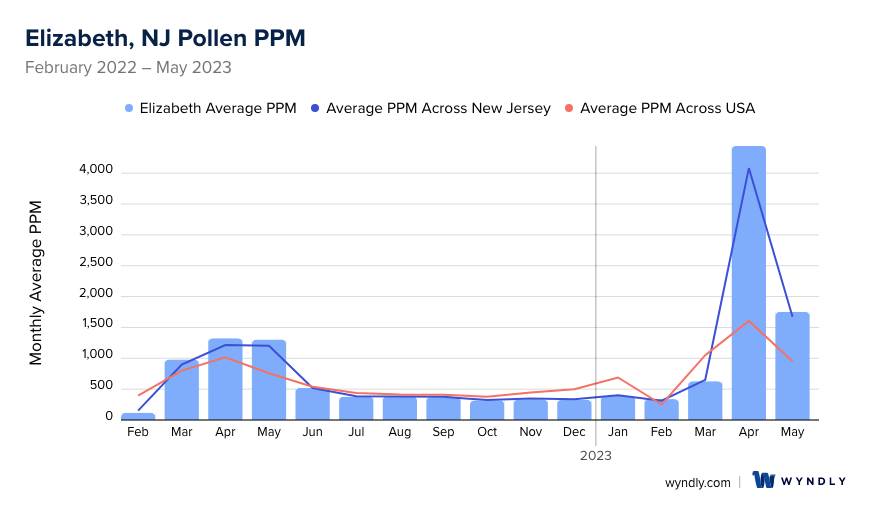
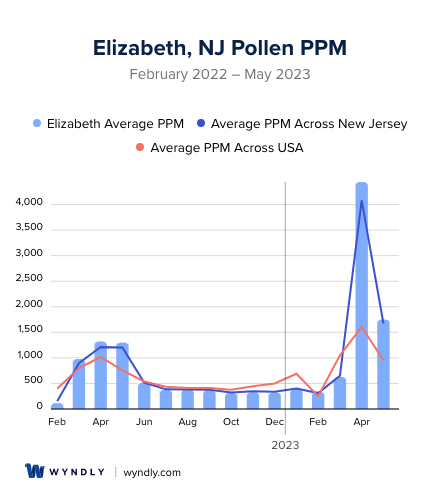
Elizabeth, NJ Pollen and Allergy Breakdown by Month
Grass
When is grass pollen highest in Elizabeth, NJ?
April has the highest grass pollen in Elizabeth, NJ with an average PPM of
When is grass pollen lowest in Elizabeth, NJ?
December has the lowest grass pollen in Elizabeth, NJ with an average PPM of
Tree
When is tree pollen highest in Elizabeth, NJ?
April has the highest tree pollen in Elizabeth, NJ with an average PPM of
When is tree pollen lowest in Elizabeth, NJ?
January has the lowest tree pollen in Elizabeth, NJ with an average PPM of
Weed
When is weed pollen highest in Elizabeth, NJ?
April has the highest weed pollen in Elizabeth, NJ with an average PPM of
When is weed pollen lowest in Elizabeth, NJ?
February has the lowest weed pollen in Elizabeth, NJ with an average PPM of
Elizabeth, NJ Pollen Monthly Breakdown by Pollen Type
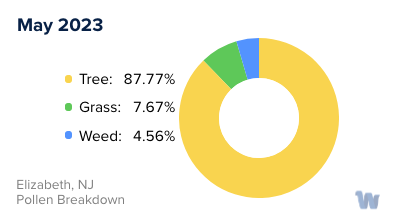
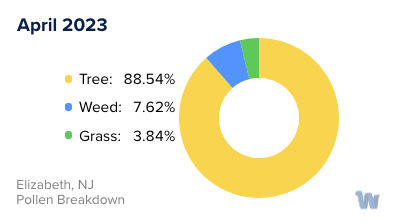
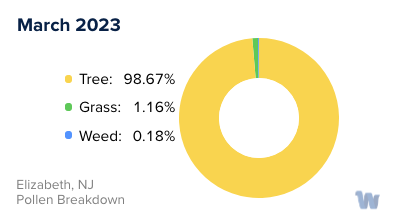
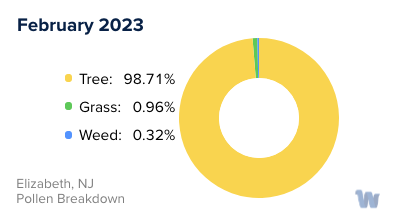
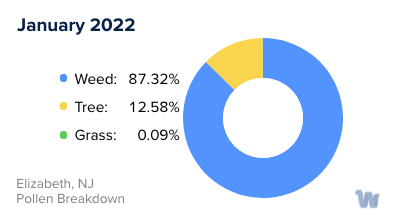
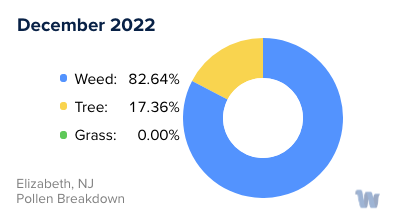
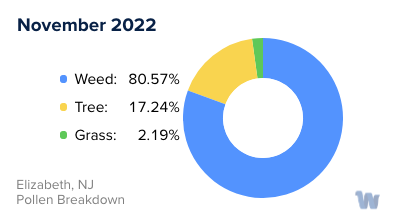
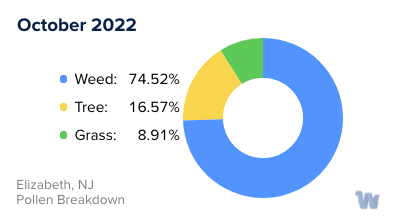
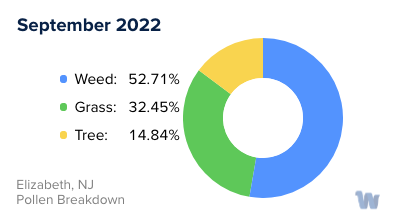
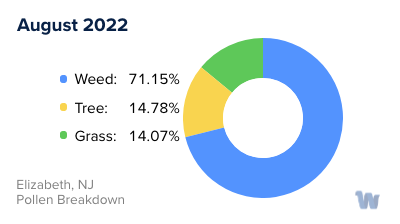
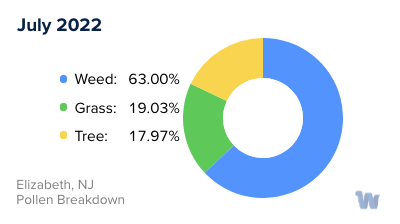
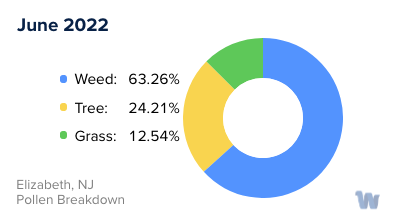
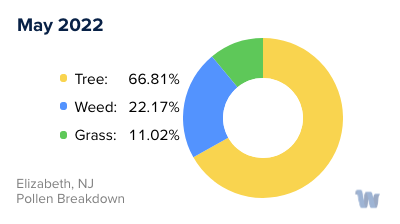
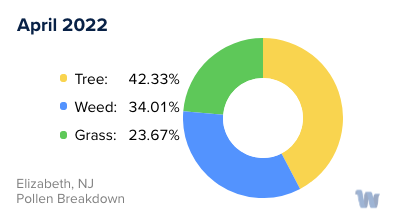
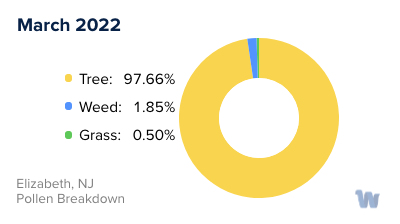
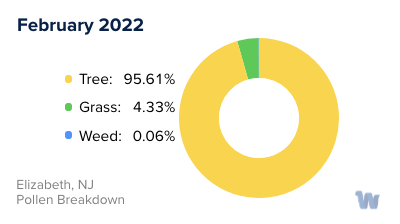
Pollen and Hay Fever in Elizabeth, NJ
Pollen allergies, often referred to as hay fever, are a common health concern for many residents and visitors in Elizabeth, New Jersey. These allergies occur when the immune system reacts to pollen from trees, grasses, and weeds, treating them as if they were harmful invaders. The body's response can cause symptoms such as sneezing, itchy eyes, and a runny nose.
In Elizabeth, New Jersey, the primary types of pollen that trigger allergies come from trees, grass, and ragweed.

